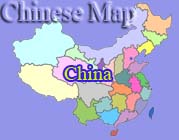China's economic advances praised, political elements criticized
 Geneva - China received praise Monday for economic growth, during a United Nations review of the republic's human rights record, but also came under criticism for conditions in prisons and limited political rights.
Geneva - China received praise Monday for economic growth, during a United Nations review of the republic's human rights record, but also came under criticism for conditions in prisons and limited political rights.
The criticism, largely from European nations, focuses on religious freedoms, allegations of torture, use of the death penalty for those convicted of even non-violent offenses and the rights of minorities.
China, the most populous country with the world's third largest economy and a member of the Security Council, said it had unique governmental, judicial and criminal systems that other nations needed to respect.
The ambassador to the UN in Geneva, Li Badong, concluded his statements to the Human Rights Council's periodic country review by thanking those nations which had issued praised and saying he would not deal with points of contention.
Juliette De Rivero, from Human Rights Watch, commented on the sidelines of the session, that if China felt "comforted by praise" from countries like Zimbabwe, Sudan and Burma, "it said something about its own human rights record."
Sudan, under heat itself from human rights groups and the International Criminal Courts for alleged violations in Darfur, had called China an "ethical and moral country" while praising its rights record.
The issue of the region of Tibet came up several times, with some nations asking China to better protect residents there, especially the minorities, while others, aligning themselves with Beijing's position, stressed that the area was an "integral part" of the People's Republic.
The Chinese ambassador said his country had a free press, with restrictions on reporting coming from "stakeholders" but not the government. He also denied the state used "black jails" or torture.
Rights activists said that more room has been made for lawyers in the country in recent years and they have been feeling more empowered to be outspoken, evidenced by their willingness to sign petitions.
They warned that dozens of human rights defenders, HIV activists and people with similar backgrounds still sat in jails.
The Universal Period Review process was introduced in 2007 by the UN and is supposed to check each country's rights record once every four years. So far, some 55 countries have been reviewed. (dpa)